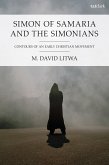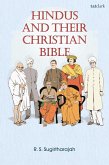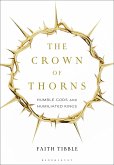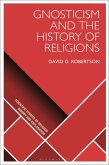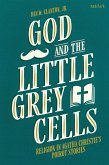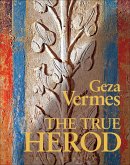Who were the Simonians? Beginning in the mid-second century CE, heresiologists depicted them as licentious followers of the first "gnostic," a supposedly Samarian self-deifier called Simon, who was thought to practice "magic" and became known as the father of all heresies.
Litwa examines the Simonians in their own literature and in the literature used to refute and describe them. He begins with Simonian primary sources, namely The Declaration of Great Power (embedded in the anonymous Refutation of All Heresies) and The Concept of Our Great Power (Nag Hammadi codex VI,4). Litwa argues that both are early second-century products of Simonian authors writing in Alexandria or Egypt. Litwa then moves on to examine the heresiological sources related to the Simonians (Justin, the book of Acts, Irenaeus, the author of the Refutation of All Heresies, Pseudo-Tertullian, Epiphanius, and Filaster). He shows how closely connected Justin's report is to the portrait of Simon in Acts, and offers an extensive exegesis and analysis of Simonian theology and practice based on the reports of Irenaeus and the Refutator. Finally, Litwa examines Simonianism in novelistic sources, namely the Acts of Peter and the Pseudo-Clementines. By the time these sources were written, Simon had become the father of all heresies. Accordingly, virtually any heresy could be attributed to Simon. As a result-despite their alluring portraits of Simon-these sources are mostly unusable for the historical study of the Simonian Christian movement. Litwa concludes with a historical profile of the Simonian movement in the second and third centuries.
The book features appendices which contain Litwa's own translations of primary Simonian texts.
Litwa examines the Simonians in their own literature and in the literature used to refute and describe them. He begins with Simonian primary sources, namely The Declaration of Great Power (embedded in the anonymous Refutation of All Heresies) and The Concept of Our Great Power (Nag Hammadi codex VI,4). Litwa argues that both are early second-century products of Simonian authors writing in Alexandria or Egypt. Litwa then moves on to examine the heresiological sources related to the Simonians (Justin, the book of Acts, Irenaeus, the author of the Refutation of All Heresies, Pseudo-Tertullian, Epiphanius, and Filaster). He shows how closely connected Justin's report is to the portrait of Simon in Acts, and offers an extensive exegesis and analysis of Simonian theology and practice based on the reports of Irenaeus and the Refutator. Finally, Litwa examines Simonianism in novelistic sources, namely the Acts of Peter and the Pseudo-Clementines. By the time these sources were written, Simon had become the father of all heresies. Accordingly, virtually any heresy could be attributed to Simon. As a result-despite their alluring portraits of Simon-these sources are mostly unusable for the historical study of the Simonian Christian movement. Litwa concludes with a historical profile of the Simonian movement in the second and third centuries.
The book features appendices which contain Litwa's own translations of primary Simonian texts.



